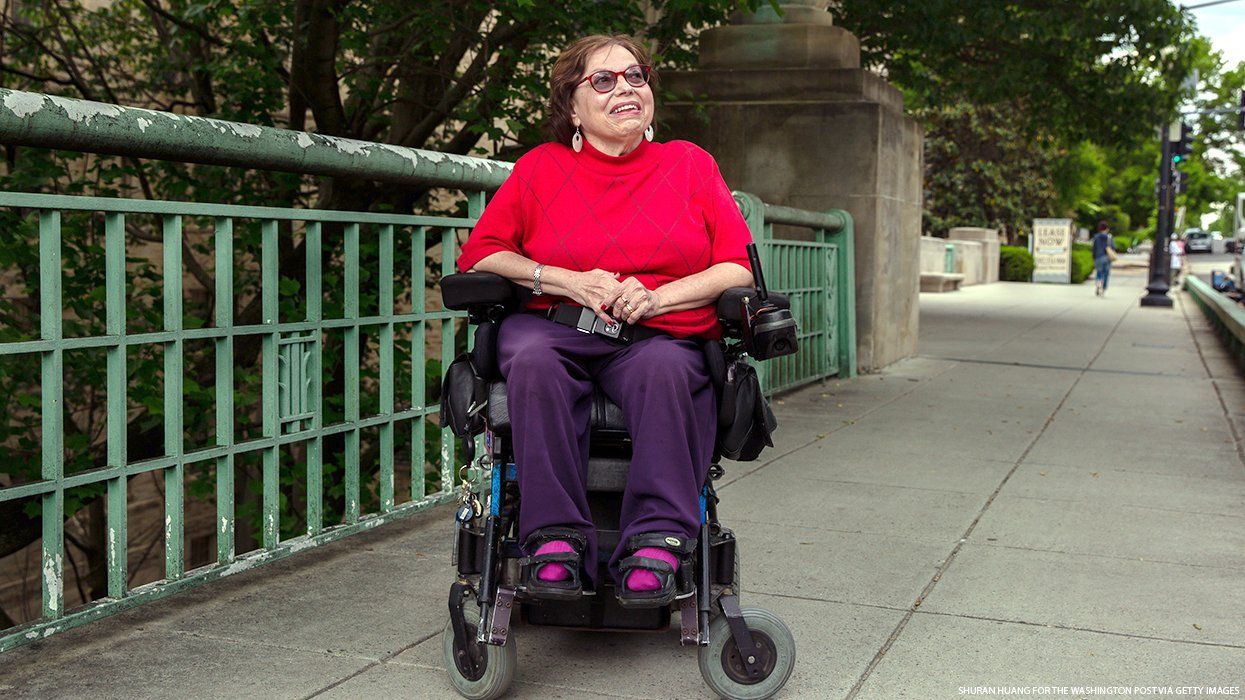At a time when people with disabilities were were treated as second-class citizens, Judith Heumann reimagined what it means to be disabled in the United States.
The civil rights activist reportedly passed away after a week of dealing with heart issues, possibly caused by her lifelong grapple with polio. Several prominent politicians and activists have since paid tribute to Heumann, with President Joe Biden writing that she was "a trailblazer – a rolling warrior – for disability rights in America."
"I knew Judy for a long time. ... Her legacy is an inspiration to all Americans, including many talented public servants with disabilities in my Administration," he said.
Heumann was born in 1947 and contracted polio two years later. As a child, she was denied entry into a local public school because her being in a wheelchair was considered a "fire hazard." At age eight, she attended Camp Jened in upstate New York, a summer camp for adolescents with disabilities, and eventually became a counselor there.
Her time at the camp led her to pursue a career in education, until she was denied a teaching license in New York City, despite passing her exams and having all necessary requirement. Heumann sued the board of education and became the first wheelchair-using teacher in the state.
In 1974, Heumann helped draft the Individuals with Disabilities Education Act, which guaranteed equal education access for students with disabilities. Her activism sparked a wave of young activists with disabilities to fight for civil rights protections.
Heumann also co-founded Disabled in Action with other Camp Jened members, which led the longest sit-in protest in US history. In 1977, activists protested against US Secretary of Health Joseph Califano for 28 days after he refused to sign federal civil rights protection for people with disabilities.
President and CEO of the American Association of People with Disabilities, Maria Town, told the Hollywood Reporter that Heumann's activism went beyond civil rights, fighting for the normalization of disabilities in society.
“Beyond all of the policymaking and legal battles that she helped win and fight, she really helped make it possible for disability to not be a bad thing, to make it OK to be disabled in the world and not be regarded as a person who needs to be in a separate, special place," she said.
Heumann was featured in the 2020 documentary Crip Camp: A Disability Revolution, about Camp Jened and disability rights in the US, where she said she wants to see “feisty disabled people change the world.”
She also once famously said: “Disability only becomes a tragedy when society fails to provide the things we need to lead our lives – job opportunities or barrier-free buildings, for example. It is not a tragedy to me that I’m living in a wheelchair.”
- Black Veterans Sue Federal Government for Denying Benefits Based on Race ›
- Hundreds of Elementary Students Are Arrested in Schools Every Year ›
- Former NFL Players Sue League For Denying Disability Claims ›
- How We Can Destigmatize Disabilities, According to Easterseals' Kendra Davenport | AdvocateChannel.com ›
- What Lily Newton & Erin Hawley Want You to Know About Living With Disabilities ›



















































